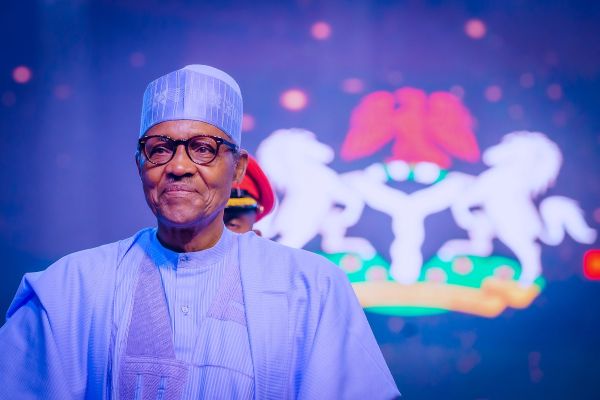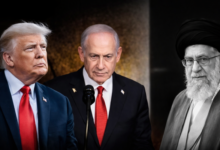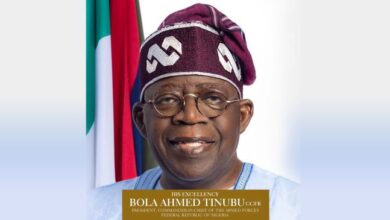
Muhammadu Buhari, Nigeria’s former military ruler turned democratically elected president, died on Sunday, July 13, 2025, in a London hospital at the age of 82. His passing marks the end of a consequential era in Nigeria’s post-independence history — one defined by military discipline, uncompromising integrity, and complex contradictions.
The announcement came via a solemn post by his longtime spokesperson, Mallam Garba Shehu, who confirmed that Buhari died at approximately 4:30 p.m. in the United Kingdom, where he had travelled for ongoing medical treatment.
In line with Islamic rites, Buhari’s remains will be interred in his hometown of Daura, Katsina State, today, Monday, July 14, with President Bola Tinubu, Vice President Kashim Shettima, and a procession of Nigerian and West African dignitaries in attendance.
A Life of Duty: From Daura to Dodan Barracks and Aso Rock
Born in 1942, Muhammadu Buhari’s public life spanned over six decades — from a cattle-rearing teenager in Daura to Platoon Commander in Abeokuta, Nigeria’s military Head of State from 1984 to 1985, and finally a two-term elected President from 2015 to 2023.
He was a soldier’s soldier — regimented, stoic, and principled — but also a reluctant democrat, whose governance style fused military command with civil politics. His life, like Nigeria’s postcolonial journey, was marred by high ideals and contentious outcomes.
Buhari contested four presidential elections before clinching power in 2015 under the All Progressives Congress (APC) — making history as the first opposition candidate to defeat an incumbent in Nigeria’s democratic experience. In doing so, he promised change, anti-corruption reforms, and a war on terror that would define the next eight years.
The Legacy Debate: Spartan Leadership or Democratic Deficit?
As condolences poured in, so too did reflections on a legacy as complex as it was impactful.
President Bola Tinubu, in a heartfelt statement, called Buhari “a patriot, a soldier, and a statesman” and ordered national flags flown at half-staff for seven days, alongside a special Federal Executive Council (FEC) session in his honour.
“He stood firm through Nigeria’s most turbulent times,” Tinubu wrote. “He championed discipline in public service, confronted corruption head-on, and placed the country above personal interest at every turn.”
While Buhari’s admirers point to his ascetic lifestyle, war on graft, and infrastructure investments in rail, roads, and power, critics argue that his tenure also witnessed economic stagnation, growing insecurity, suppressed civic space, and controversial appointments.
A Man of Contrasts: Loved by the Grassroots, Questioned by the Elite
To millions of ordinary Nigerians — the talakawa — Buhari was a man who embodied integrity and justice. But among policy elites and business leaders, concerns lingered over his protectionist economic tendencies, monetary rigidity, and sometimes overbearing executive style.
Even within his party, the APC, Buhari’s ‘remote leadership’ style, particularly during periods of extended medical leave in the UK, sparked internal divisions and limited consensus-building on crucial national reforms.
Still, his discipline, humility, and rejection of opulence made him one of the most enduring political brands in Nigerian history.
Tributes from Statesmen and Generals: From Obasanjo to Babangida
Former President Olusegun Obasanjo described Buhari as a “colleague and patriot whose experience is needed now more than ever,” while former military ruler Ibrahim Babangida called him a “course mate, brother, and resolute nationalist.”
Former Vice President Yemi Osinbajo hailed him as a “true patriot whose legacy of discipline and selfless service will endure.”
State governors across party lines — from Hope Uzodinma and AbdulRahman AbdulRazaq to Seyi Makinde and Bala Mohammed — mourned his passing, acknowledging a leader who, for better or worse, left indelible marks on the Nigerian state.
The Final Chapter: Quiet Exit, Loud Legacy
Buhari’s passing, though expected due to recurring health issues, has triggered a rare moment of national reflection. His Kaduna residence remained cordoned off by security personnel, while Daura has become the epicentre of grief and tributes, with citizens and dignitaries trooping in to pay last respects.
His towering 120-room private home — a contrast to his public image of simplicity — became symbolic of a man who commanded reverence in death as he did in life.
BRANDECONOMY INSIGHT: What Buhari Leaves Behind
Politically, Buhari’s death will cement his status as a founding pillar of Nigeria’s Fourth Republic and a generational bridge between military and civilian leadership.
Economically, his administration’s record will be debated for years — a mix of bold infrastructure initiatives, controversial border closures, and heavy central bank interventions.
Institutionally, Buhari’s greatest legacy may be his effort to return Nigeria to civic stability through his two elected terms, restoring electoral transition credibility, even if many of his promises remained unmet.
BOTTOM LINE:
President Muhammadu Buhari is gone — but the imprint of his style, his policies, and his persona will endure in Nigeria’s memory for generations. Whether you admired him or critiqued him, one thing is certain: he redefined what it meant to lead with austere dignity in an age of excess.
May Allah grant him eternal rest in Al-Jannah Firdaus.












